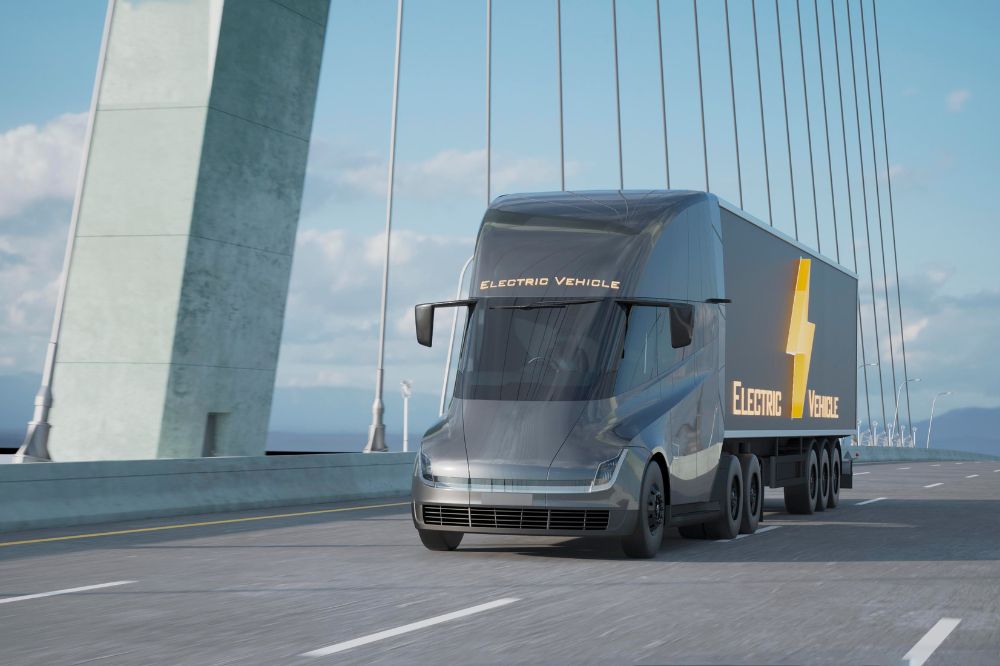ELECTRIC ON THE ROAD: ARE ELECTRIC VEHICLES THE FUTURE OF LOCAL MOVING?

Introduction
The Rise of Electric Vehicles in the Packers and Movers Industry
Electric vehicles offer several advantages for local moving companies. They produce zero direct emissions, which is particularly beneficial in urban areas where air quality is a growing concern. Additionally, EVs are generally quieter than their combustion engine counterparts, making them ideal for residential moves where noise pollution can be an issue.
As battery technology continues to improve and more manufacturers enter the electric truck market, the options for packers and movers are expanding. From small electric vans suitable for apartment moves to larger electric trucks capable of handling house relocations, the industry is seeing an increasing variety of vehicles that could replace traditional diesel-powered options.
Cost-Effectiveness: How EVs Could Benefit Local Moving Companies
Electric vehicles typically have lower fuel costs than diesel or gasoline-powered vehicles. Electricity rates are generally more stable than fuel prices, allowing moving companies to predict and manage their operational expenses better. Moreover, EVs have fewer moving parts than internal combustion engine vehicles, which can lead to reduced maintenance costs and less downtime for repairs.
Another potential cost benefit comes in the form of government incentives. Many countries and local authorities offer tax breaks, grants, or other financial incentives to businesses that adopt electric vehicles. These incentives can significantly reduce the initial investment cost, making the transition to EVs more attractive for packers and movers.
However, it's important to note that the cost-effectiveness of EVs can vary depending on factors such as local electricity rates, available incentives, and the specific operational needs of the moving company. A thorough cost analysis should be conducted to determine each business's potential return on investment.
Environmental Impact: Packers and Movers Embracing Green Transportation
This shift towards greener transportation aligns with growing consumer awareness and demand for environmentally responsible services. Many customers, particularly younger generations, are increasingly considering the environmental impact of their choices when selecting service providers. Moving companies that adopt electric vehicles can position themselves as eco-friendly options, potentially attracting environmentally conscious customers and gaining a competitive edge in the market.
Furthermore, electric vehicles can help packers and movers comply with increasingly stringent environmental regulations. As cities worldwide implement low-emission zones and other measures to combat air pollution, companies with electric fleets may find it easier to operate in urban areas without incurring additional fees or restrictions.
Range and Reliability: Can Electric Trucks Handle Full-Day Moving Jobs?
Most local moves occur within a relatively limited geographic area, well within the capabilities of many modern electric trucks and vans. However, longer distance moves or multiple jobs in a single day may pose challenges for EVs with limited range.
Moving companies may need to carefully plan their routes and charging schedules to address this issue. Some businesses may opt for a mixed fleet, using electric vehicles for shorter, local moves and retaining some diesel trucks for longer-distance or more demanding jobs.
Electric vehicle reliability is another important consideration. While EVs generally have fewer mechanical components that can fail, issues with batteries or electrical systems can still occur. Packers and movers must ensure they have robust maintenance plans and potential backup vehicles to minimize service disruptions.
Charging Infrastructure: Preparing Packers and Movers for an Electric Fleet
Installing on-site charging stations can be a straightforward solution for companies with their own parking facilities. These stations can charge vehicles overnight, ensuring they're ready for a full day of moving jobs. However, the initial cost of installing charging infrastructure should be factored into the overall investment calculations.
Packers and movers operating in urban areas without dedicated parking facilities may face additional challenges. They may need to rely more heavily on public charging networks or explore partnerships with other businesses or property owners to secure reliable charging options.
As the demand for electric vehicles grows across industries, the charging infrastructure will likely continue to expand and improve. Moving companies that invest in EVs early may be well-positioned to take advantage of this growing network of charging options.
Customer Perception: How Green Moving Services Affect Client Choices
Moving companies transitioning to electric fleets can market themselves as eco-friendly options, appealing to environmentally conscious customers. This green image can be a powerful differentiator in a competitive market, potentially leading to increased business and customer loyalty.
Moreover, the use of electric vehicles can enhance the overall customer experience. EVs' quieter operation can be particularly appreciated during residential moves, where noise can concern both the moving customers and their neighbors.
However, packers and movers must effectively communicate the benefits of their electric fleet to potential customers. It may involve updating marketing materials, websites, and customer communications to highlight the environmental benefits and any possible cost savings that may be passed on to clients.
Government Incentives for Packers and Movers Adopting Electric Vehicles
- Tax credits or deductions for purchasing electric vehicles
- Grants or subsidies to offset the cost of EVs and charging infrastructure
- Reduced registration fees or road taxes for electric vehicles
- Preferential access to certain urban areas or parking spaces
Government incentives may change over time, and early adopters may benefit from more generous offers. Moving companies that act quickly to transition to electric vehicles may take advantage of current incentives before they are reduced or phased out.
Training and Maintenance: New Skills for the Electric Era of Moving
Drivers will need to be trained on the specific handling characteristics of electric vehicles and optimal driving techniques to maximize range and efficiency. They'll also need to become familiar with charging procedures and how to plan routes that account for charging needs.
Maintenance staff will require training on the unique components of electric vehicles, such as high-voltage batteries and electric motors. While EVs generally have fewer moving parts and may require less frequent maintenance than diesel vehicles, the nature of the maintenance tasks can be quite different and may require specialized skills.
Packers and movers may need to partner with EV manufacturers or specialized training providers to develop comprehensive training programs for their staff. This investment in training can lead to more efficient operations, reduced downtime, and improved safety for both employees and customers.
Case Studies: Packers and Movers Already Using Electric Vehicles
For example, a medium-sized moving company in California reported a 30% reduction in fuel costs after replacing half of their diesel trucks with electric alternatives. They also noted increased customer satisfaction due to the quieter operation of the electric vehicles during residential moves.
Another case study from the Netherlands showcases a moving company that has gone fully electric for all local moves. They've reported significant savings on maintenance costs and have seen an increase in bookings from environmentally conscious customers.
These real-world examples demonstrate that the transition to electric vehicles is possible and can bring tangible benefits to packers and movers. However, it's important to note that the success of these early adopters may be partially replicable, and each company should carefully consider its unique circumstances and operational requirements.
The Road Ahead: Predictions for Electric Vehicles in Local Moving Services
In the short term, we anticipate a gradual increase in moving companies incorporating electric vehicles into their fleets, particularly for urban and short-distance moves. As battery technology continues to improve and more electric truck models become available, the viability of EVs for longer-distance moves will increase.
The growth of the electric vehicle market is also likely to drive down costs over time, making the initial investment more palatable for smaller moving companies. Additionally, as charging infrastructure expands and becomes more readily available, some of the current limitations of EVs will be mitigated.
However, transitioning to electric vehicles in the moving industry will take time. It will likely be a gradual process, with many companies opting for a mixed fleet of electric and traditional vehicles to balance operational needs and manage the transition costs.
Conclusion
Our Blogs

BEST SCHOOLS IN CHENNAI: WHY THE CITY CONTINUES TO SHAPE INDIA’S EDUCATION FUTURE
Chennai has long been a powerhouse of quality education. From top CBSE and ICSE schools to globally recognized international institutions, the city continues to nurture academic excellence, discipline, and future-ready learning.

GUIDE TO THE BEST SCHOOLS IN AHMEDABAD FOR YOUR CHILD’S BRIGHT FUTURE
Choosing the right school is one of the most important decisions for every parent. This guide explores the best schools in Ahmedabad, highlighting academic excellence, modern facilities, and holistic development to help secure your child’s bright future.

EDUCATION FIRST: WHY BEST SCHOOLS IN BANGALORE CONTINUE TO ATTRACT FAMILIES ACROSS INDIA
Bangalore has become one of India’s most sought-after destinations for quality education, attracting families from across the country year after year. Known for its progressive learning environment, the city is home to some of the best CBSE, ICSE, and international schools, offering globally recognized curricula, experienced faculty, and state-of-the-art infrastructure. Beyond academics, these schools focus on holistic development, innovation, and extracurricular excellence—making Bangalore an ideal choice for parents who prioritize education while planning a long-term relocation for their family.



